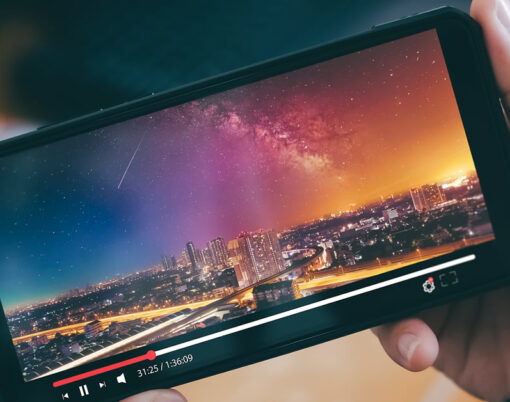In 2023, we’re well and truly living in the digital age and everything from our work to the way we shop and socialise has moved online. Even our favourite pastimes have been digitalised, with activities that were previously only possible to enjoy in real life getting a digital makeover, and making them more accessible than ever before. From the comfort of your home, sun lounger or anywhere else you happen to be, it’s now possible to indulge in a virtual yoga class, visit an online casino like Clash of Slots (https://clashofslots.com) to play your favourite games, and try on clothing and accessories remotely before you buy.
Whichever way you look at it, it’s clear that the internet has revolutionised the way we engage in leisure activities over recent years, and it’s a movement that is only set to accelerate and expand in new ways over the next decade and beyond.
Here, we take a look at how some of our best loved hobbies and pastimes have transitioned into the digital realm, as well as both the advantages and challenges this shift has brought with it.
Gaming

Gaming is easily one of the areas in which we’ve witnessed the most seismic of shifts, with multiplayer experiences adding a social layer to our favourite games and allowing us to interact, live, with other players as the action unfolds on screen. The recent addition of virtual reality has made the experience even more immersive, and it’s one that has become integral to online casino platforms, too – so much so that now, you can enjoy games like poker and feel like you’re really sitting around the poker table, or roulette just as if you’re standing beside a real life wheel.
Online role-playing games (MMORPGs) like World of Warcraft, along with competitive online shooting games like Fortnite, have become increasingly popular, too, with their growing digitalisation of gaming has connected players around the world. And professional e-sports, where skilled gamers compete for eye-watering cash prizes, have also come into their own, sparking a new generation of specialist online gamers who will go all out to be the very best..
Shopping

The way we shop has undergone a complete transformation, too, and gone are the days when buying something new required allocating an entire day to peruse bricks-and-mortar shops and compare prices before coming to a final decision. Convenience and accessibility are now the orders of the day, and it’s possible to find and purchase just about anything in just a few taps of our smartphone screens via dedicated apps, compare options through a speedy online search, and now, even try on clothing and accessories virtually before placing an order to ensure they are exactly what you’re looking for.
Not only has online shopping broadened the range of options now available to us, but it has also paved the way for us to quickly and easily access personalised recommendations and reviews so that we can make more informed decisions about what to buy.
Reading and entertainment

Whilst it’s true there’s nothing quite like holding a physical book in your hands, the advent of the Amazon Kindle and other similar e-readers and smartphone apps has revolutionised the way we access and consume reading material, with millions of books and magazines now downloadable directly to our devices for a fraction of the price of physical versions. Heralded by many as a greener way to consume media, e-books and audiobooks have made literature more accessible than ever before, and with downloads taking just seconds, it couldn’t be any more convenient to get what you want, when you want it.
Today, readers of all kinds can carry vast e-libraries on their devices, which means a huge amount of choice whilst on the go, without having to carry a huge pile of books in your bag.
Online streaming services like Netflix and Spotify, too, have also paved the way for convenient consumption of TV shows, films, music and podcasts anywhere, anytime, with huge libraries to stream or listen to on demand.
Socialising

Then, of course, there’s social media – with platforms such as Instagram, Facebook and Twitter making it easier than ever before to stay in touch with friends and family around the world. Such platforms have also made it possible to find new communities based on shared interests through Facebook groups and hashtags, but it hasn’t come without its challenges, as whiles social media was a lifeline for many of us during the online pandemic, allowing us to remain connected when we needed it the most, many feel that it has in part replaced face to face interactions permanently.
Virtual reality has taken online socialising one step further, allowing people to meet and interact in immersive digital environments, but it’s still not quite as fulfilling as the real thing. Nevertheless, for the younger generations, socialising online has always been a normal way to interact with others, and this is only likely to accelerate further over the coming years.






















